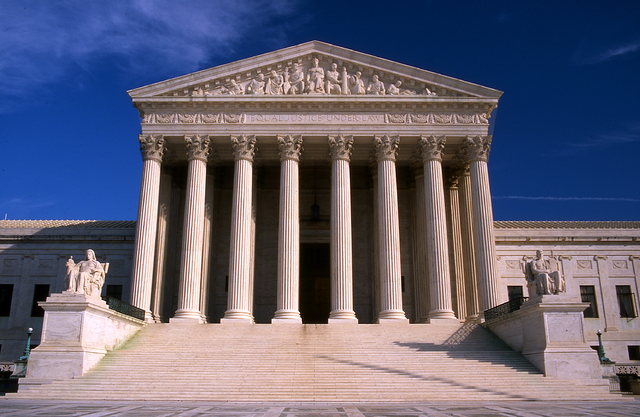Editorial: Can Illinois voters amend their constitution or not?
August 17, 2016
The framers of the Illinois Constitution didn’t want to make it easy for voters to amend the document. They didn’t want to make it impossible either.
Yet nearly half a century after the constitution was adopted, the people of Illinois are 1 for 6.
The rest of those citizen-driven amendments weren’t rejected by voters. They were thrown off the ballot by judges swayed by lawyers hired by politicians.
Advertisement
The Illinois Supreme Court will decide any day now whether voters will be denied again.
The Independent Map Amendment would take legislative redistricting out of the hands of state lawmakers and assign it to a nonpartisan commission. Its aim is to replace a system that protects incumbents with one that empowers voters.
More than half a million voters signed petitions to put it on the November ballot. Poll after poll suggests it would pass overwhelmingly, given a chance.
This is precisely the sort of scenario imagined by Article XIV, Section 3.
But Cook County Circuit Court Judge Diane Larsen ruled last month that the amendment falls outside the scope of that limited constitutional provision. With an Aug. 26 deadline for the state Board of Elections to certify the ballot, the Supreme Court agreed to an expedited appeal. This is a big moment.
Voters have tried repeatedly to exercise the right to amend their constitution, only to be tripped up by one baffling legal gotcha after another.
Is the constitution hopelessly stacked against them? If so, they deserve to hear it from the Supreme Court.
Advertisement*
It’s up to the justices to reconcile the clear intent of the constitution’s authors — and the plain language of Article XIV — with the ever-more-prohibitive reading advanced by lawyers who are paid to protect the status quo. The sentence that launched a thousand legal briefs says, “Amendments shall be limited to structural and procedural subjects contained in Article IV.”
An early, bitter debate centered on whether “structural and procedural” was intended as a conjunctive phrase. That is, did the framers mean any amendment proposed by citizens had to change the structure of the legislature and the process by which it makes laws?
The Supreme Court decided it did, and the point has been argued up, down and sideways ever since.
Later, the dictum “all elections shall be free and equal” — found in a distant corner of the constitution — was wielded to defeat an amendment that attempted to do several things at once.
That ruling inspired the current argument that the Independent Map Amendment is really several questions that should be voted on separately.
Voters might agree that an independent commission should draw the maps, for example, but not that the auditor general should help select the commission. That’s right: Bust it into smaller amendments, collect signatures for each of them and pass them one by one.
Oh, and make sure every one of those pieces is structural and procedural.
Does anyone really think the authors of the constitution meant to make this so hard? Of course they didn’t.
True, the delegates didn’t want to give citizens a free hand to pass laws and enshrine them in the constitution. (Smart move: California’s constitution has been amended more than 500 times.)
In Illinois, it’s mostly up to lawmakers to propose amendments, which must then be approved by voters.
MORE: Lawmakers should override Gov. Bruce Rauner’s veto of motor voter bill
But the delegates to the 1970 convention spoke candidly about the slim-to-none chance that lawmakers would suggest changes to restrict their own powers.
That’s why the constitution allows voters to propose amendments only to Article IV, which deals with the legislative branch. It’s so citizens will have some recourse when their lawmakers run amok.
In fact, the delegates specifically discussed the possibility that voters might want to amend the section about redistricting.
They saw it coming: Lawmakers who draw their own districts have abused that power. They manipulate the boundaries to make sure they get re-elected, and to make sure their enemies don’t.
That means some votes count more than others, and the lawmakers decide which ones. The state’s legislative maps are so gerrymandered that most races field only one candidate.
On the Nov. 8 ballot, only 63 of 158 legislative races are contested. Voters are being cheated.
But lawmakers think the system works just fine. They’re not going to lift a finger to change it. That’s the sort of thing the framers of the constitution were worried about.
It’s what the Supreme Court ought to be worried about too.
___
(c) 2016 the Chicago Tribune
Visit the Chicago Tribune at www.chicagotribune.com
Distributed by Tribune Content Agency, LLC.
Advertisement









